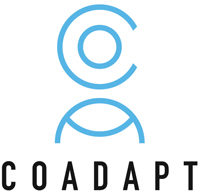
The University of Trento (UniTN) is a medium-sized University in Italy, constantly ranked among the best Italian Universities: as first in the general ranking of Censis compiled for la Repubblica 2016-2017 and in the 201-250 group of institutions according to the THE - Times Higher Education Rankings 2016-2017. This result is due, in particular, to the University’s ability to finance itself, its success in scientific research, its ability to look towards Europe and the world, and to the satisfaction of the students. UniTN has an extensive experience with the management of the projects funded under FP7. It was awarded 119 projects and it was the coordinator of 42. As for H2020, 65 projects have been approved so far: 9 ERC grants, 15 MSCA-IF, 4 MSCARISE, 5 MSCA-ITN, 8 FET-OPEN and Proactive, 24 other projects (6 IA, 3 CSA and 15 RIA - in Industrial Leadership and Societal challenges) and is the coordinator in 33 of them. UNITN is part of HIT (Hub Innovazione Trentino), and an associated partner of the EIT-ICTLabs KIC. The Department of Information Engineering and Computer Science (DISI) was established in January 2002. Since then, it has grown to more than 50 faculty members and has hosted 200 full-time Ph.D. students and 100 research staff, soon becoming recognized as the top computer science department in Italy. DISI has an outstanding scientific ability to attract R&D funding (22 EC projects in FP6, 22 in FP7, 12 until now in H2020 among which 1 ERC StG) as well as considerable experience of EC project coordination, such as: Living Knowledge (FP7 FET IP), LiquidPub (FP7 FET-OPEN STREP), Glocal (FP7 IP); and EternalS (FP7 FET CSA), Acanto (H2020-PHC-2014), Netcommons (H2020-ICT-2015), Pacas (H2020-SESAR-2015-01). Over time, DISI has also consolidated as an international and multi-cultural working environment, hosting a EU Marie Curie Chair in Networking and Security, a EU Erasmus Mundus Masters in Informatics (jointly with the Universities of RWTH Aachen and Edinburgh) and holding a formalized long-term collaboration with Indian Universities and Research Centres.
Our main tasks in CO-ADAPT and how we fit in
The main tasks UNITN will be involved in the project is the methodological, computational and technological design of the conversational systems. Conversational systems will be instrumental innovation vehicle to support and cope with change at a scale in the counseling interventions. UNITN has more than two decades experience in developing artificial intelligence systems and they will be involved in the following project’s roles and tasks:
- WP5 (Conversational Technology) leader.
- Principal contributor of knowledge extraction from linguistic and physiological signals (T5.1)
- Principal contributor of User Modeling (T5.3)
- Principal contributor of Conversational Modeling (T5.5)
- Technology contributor to the data collection and agent testing (T5.4)
- Developer of the conversational approach to change psychology (T1.3)
